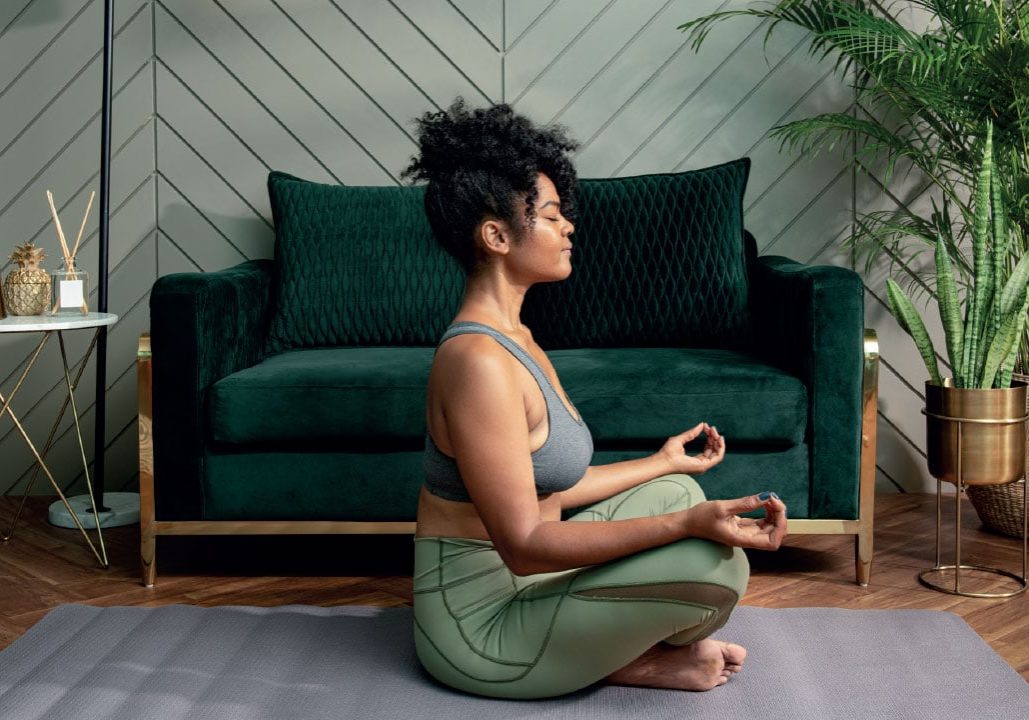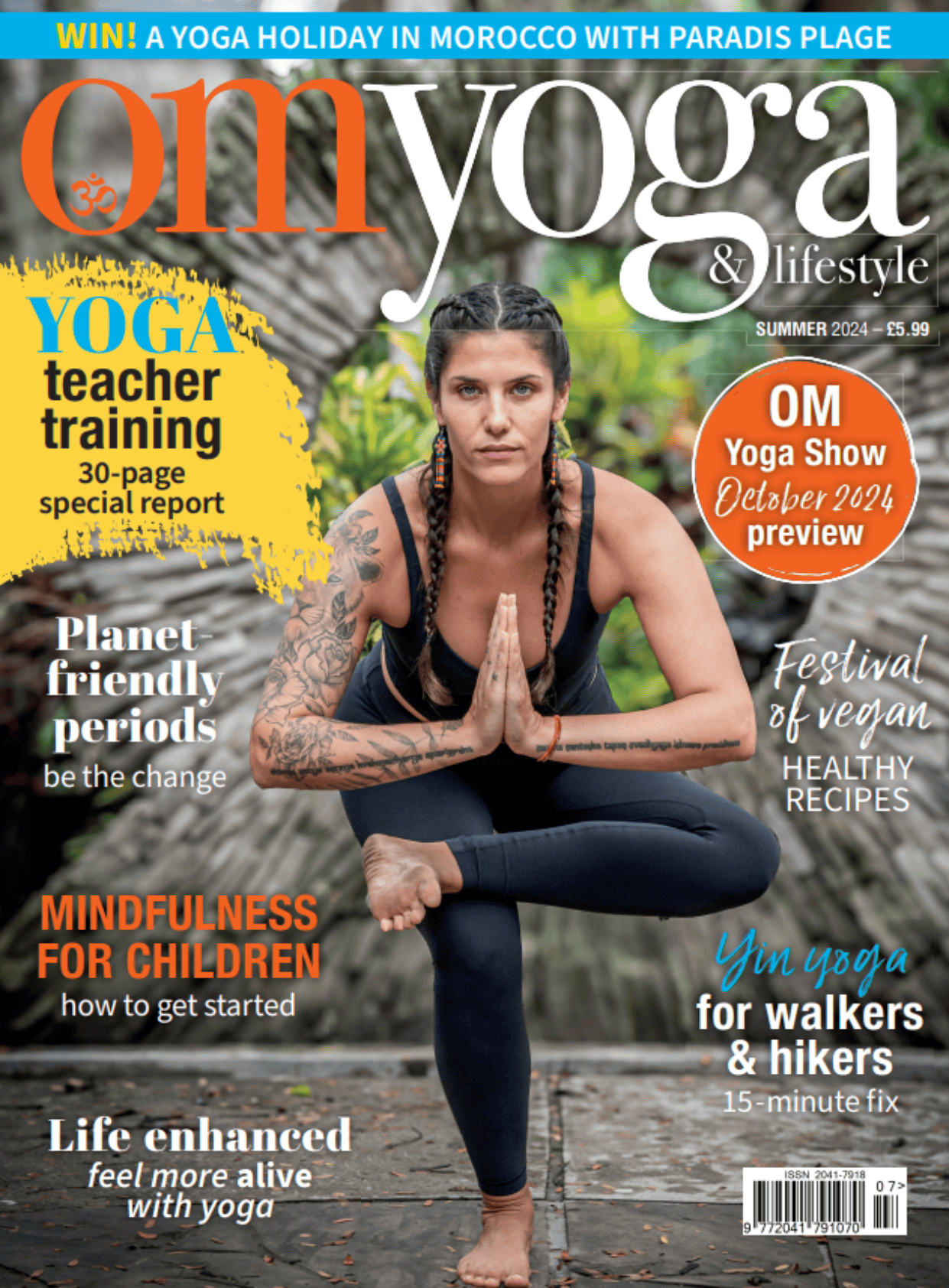
Everyday Transcendence
When you think of transformation or transcendence where does your mind go? Do you seek
wild and extravagant experiences that promise bliss states? Or do you look within? By Lauren Bloxham
Reading time: 3 minutes
Recognising and accepting that we are limited human beings can be difficult at times. When life is painful, difficult, or feels mis-aligned, we can be hard on ourselves. Facing our vulnerabilities and meeting the limitations of our capacity can lead us to wonder ‘what is wrong’ with us — it’s a narrative many of us know all too well. When we fall short of expectation, whether our own or societies, we can be hard on ourselves.
Limitations are healthy though; they can teach us when to stop and rest. Being vulnerable is part of the human condition and shows us when to call in support. But our fear of being present for these experiences, and the fierce drive to go beyond them, often, is not.
It’s worth thinking about the lengths we might be prepared to go to, to avoid feeling, experiencing, or thinking about what it is we’re most afraid of. It’s worth considering how much of our time spent on self-improvement is avoidance of fear, frailty, ageing, and vulnerability. Most importantly, it’s powerful to ask ourselves whether our choices are choices which give us agency over our own experience or have us hooked on something external that holds the promise that we won’t have to face those things.
Good teaching and leadership will very often guide us right back to the place and experience we least want to be in. A good therapist might gently touch the sore spots in our psyche, reminding us of what it is we’re seeking to avoid. As much as it is easier to avoid looking at ourselves, to pass the pain like a hot potato, to blame another person, and reach for a quick fix, in the long-run, it’s our avoidance of the thing we fear the most that can be most limiting.
When you think of transformation or transcendence where does your mind go? Do you envisage out-of-body experiences, shamanic journeying or extreme breathwork? Do you seek wilder and more extravagant experiences that promise bliss states? Or do you look within?
The yoga sutras teach us that the practice of yoga becomes “firmly grounded when well attended to, for a long time, without break and in all earnestness” (Satchidannda, 2014). Translations will differ, but the lesson remains the same: that to find balance of body and mind is a regular practice, something sustainable and something that we need to attend to indefinitely.
Most of us are working people, paying bills, socialising, raising families, being part of a family and, depending to what degree we opt into or out of the social systems around us, our everyday living is made up of pretty much the same stuff. So for most of us, seeking wildly spiritual experiences in rainforests on the other side of the world, or spending thousands of pounds on transformational coaching simply isn’t viable, and being able to dedicate a life to it will be less viable still. Training as a yoga teacher, whilst accessible for many, simply isn’t sustainable as a main source of income for most. The promise that these things will yield something different, something transformational, is powerful though and has many people hooked into the idea that they will provide a ‘way out’ of discomfort.
So, what is a transformational practice that is sustainable? A weekly yoga class? Weekly therapy? These still require a degree of free time and financial solvency, as well as our own dedication and commitment to the work, and this is where our ‘get-out-of[1]jail-free card’ nature might have us decide that there’s an easier, quicker way. If we ignore the ancient wisdom, and decide that ‘fast track’ ‘quick fixes’ are the real path to transformation, then we overlook one of the greatest joys we could experience in life; presence, and greater still, being comfortable with it. When we burst the ‘quick-fix’ bubble, and see through the ‘magic bullet’ branding, we come back to the real world, and the real work — the dedication to living in a way that honours our human limitations, our need for rest, for food, for recovery. Attending to our need for time to process. Honouring the space we need to feel creative, and taking our foot off the pressure peddle. It’s here, in this very limited, basic human body that we can experience everyday transformation and transcendence.
The practice of everyday transcendence
Dedicate the next month of life to being present with arising sensation. Simply recognising and accepting that things feel the way they do physically, through sight, sound, taste, touch and smell, both internal and external.
In doing so we start to delve into the realms of physical comfort and offer ourselves a powerful opportunity to change small everyday things. Who do we become if we dedicate ourselves to making choices for physical comfort and a sense of deep nourishment?
What if we turn our focus towards our emotions and begin to pay attention to the places in which we feel most safe, or the people who make us feel most alive. Maybe we notice the powerful effects of certain media and begin to choose differently for ourselves.
Attending to these everyday experiences can kick start the life-long journey towards contentment, joy, comfort and bliss. And this journey is free, it simply takes dedication to paying attention and the recognition that we get to choose something deeper, more loving and more nourishing for ourselves as a result. These things have the power to bolster us, to restore us and to grow us. It’s our dedication towards them that re-frames and ultimately frees us from what we fear.
Practice yoga with Lauren Bloxham online at Sabda.uk, movement, mindfulness & meditation for slow movers & gentle souls or join her on retreat, ‘The Wild Medicine’ at Bala Brook, Dartmoor National Park for a deep dive into ‘nature as mirror’ November 14-17, 2024. Connect on Instagram @blackdogliving or search ‘The Honey Doctrine – Ancient Yoga / Modern living’ podcast.


